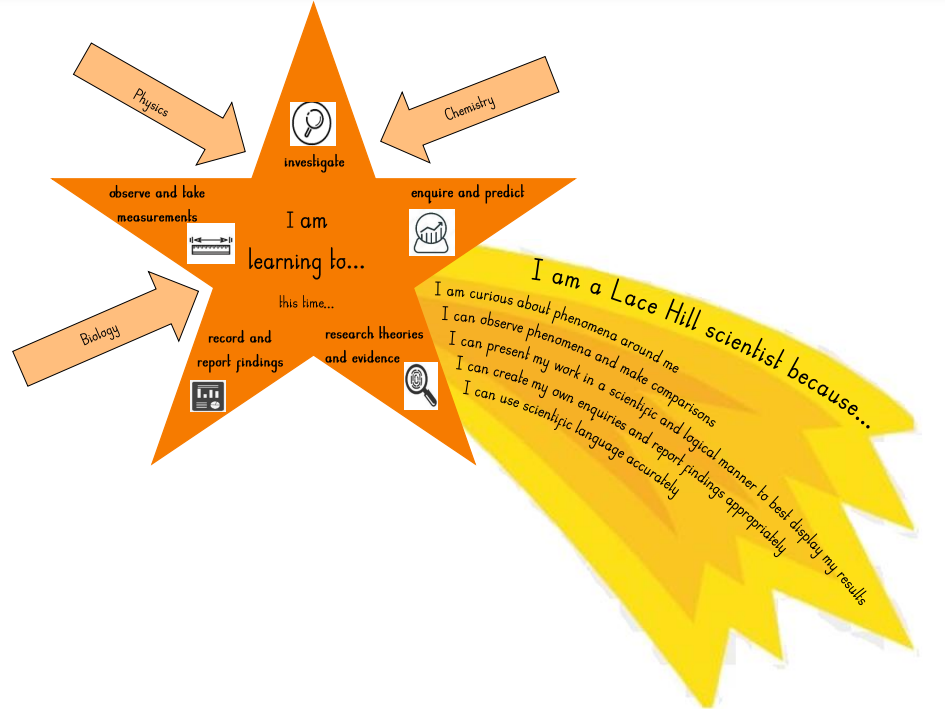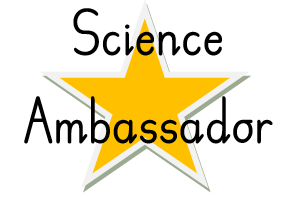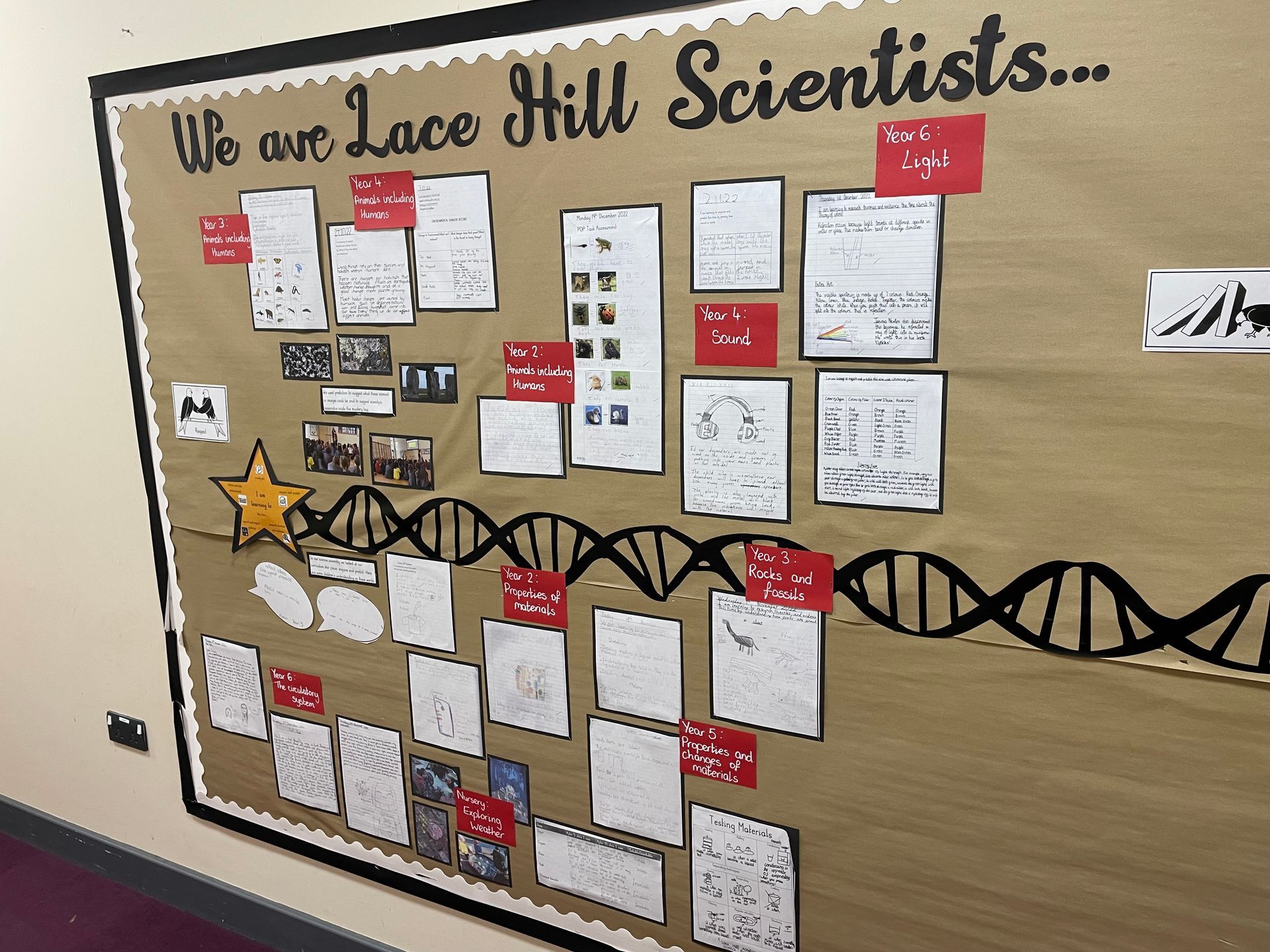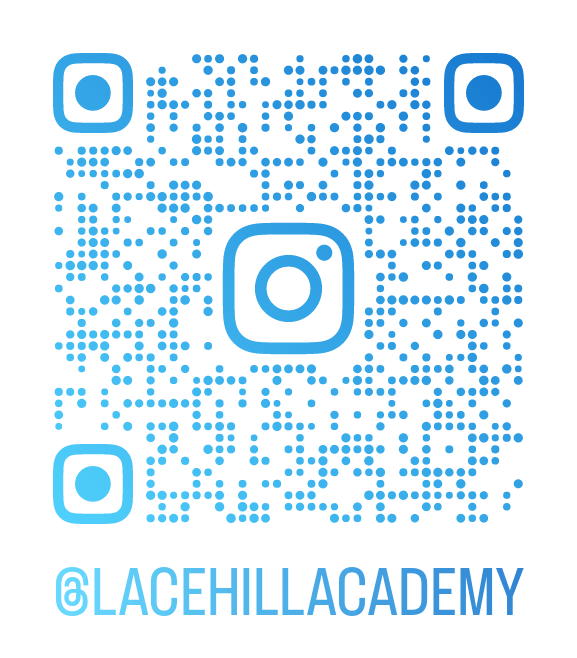Intent
Through the teaching and learning of science, we aspire to create competent and curious scientists. We encourage children to observe and ask questions about phenomena to help them better understand the world around them, and support this by providing practical enquiries and experimentation wherever possible to bring the topics to life. We carefully map out the science curriculum for every year group to ensure that pupils’ science knowledge and their scientific skills are built upon throughout lessons, as well as enabling them to use previous learning from science and other subjects to create confident and independent scientists.
Our science curriculum is designed around three
substantive concepts (shown in the arrows pointing towards the star):
Through our science curriculum, children are also exposed to the following disciplinary concepts (shown in the points of the star):
- Investigating
- Observing and taking measurements
- Recording and reporting findings
- Researching theories and evidence
- Enquiring and predicting
This is how our children learn to be scientists and achieve our intent below (also shown in the golden tail).
I am a Lace Hill scientist because…
- I am curious about phenomena around me
- I can observe phenomena and make comparisons
- I can create my own enquiries and report findings appropriately
- I can use scientific language accurately
- I can present my work in a scientific and logical manner to best display my results
Implementation
Our children need to understand how science has changed our lives and is vital to the world’s future prosperity. They need to recognise the power of rational explanation and be excited and curious about the world around them. We need to encourage them to understand how science can help us explain what is occurring, predict how things will behave and analyse the causes. Our children need to recognise essential aspects of the knowledge, methods, processes and uses of science. They need to build up a body of knowledge, skills and concepts to develop their understanding of the world we live in.
Our science curriculum reflects the importance of spoken language in pupils’ development across the whole curriculum. Teachers model scientific vocabulary so that children can learn to articulate scientific concepts clearly and precisely.
Children need to experience science via: observing over time; pattern seeking; identifying, classifying and grouping; comparative and fair testing (controlled investigations); and researching using secondary sources. Our children should seek answers to questions through collecting, analysing and presenting data. By experiencing all of these processes, our children will be ‘working scientifically’ and be well prepared for secondary school.
At Lace Hill Academy, we follow the National Curriculum, which revisits topics and builds on previous knowledge, allowing children to know more and remember more as they progress. We teach science through discrete lessons, however teachers do try to link and make connections with other subjects where possible.
Impact
At Lace Hill Academy, our aim is for our science curriculum to develop curious thinkers, who are interested in the phenomena around them. By the end of KS2, we want our children to be able to create their own equiries and report findings. Our curriculum enables children to develop an understanding of scientific vocabulary and use it accurately. They will learn to present work in a scientific and logical manner, considering their aims and audience. The impact of our science curriculum is measured through monitoring work, listening to the children’s attitudes about science through pupil voice, by taking learning walks/book scrutinies and termly data analysis.
Here is what our some of our pupils say about science at Lace Hill Academy.
'I enjoying being asked questions and then investigating to find out the answers.'
'I like that we get to research in our science lessons and present this in our own way.'
'I like that we do different experiments, for example we got to make our own slime for states of matter which is a non-Newtonian fluid.'
'In our science lessons we have been learning about hydroponics which is when you grow seeds in water not soil.'








